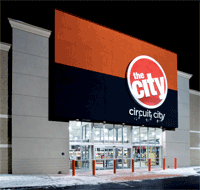 It’s hardly surprising, but now it’s official: Troubled consumer-electronics merchant Circuit City has failed to find a buyer and will therefore be liquidating all its stores. It’s lousy news for its more than 30,000 employees, its stockholders, and anyone who was a fan of the chain, which started with a single store six decades ago.
It’s hardly surprising, but now it’s official: Troubled consumer-electronics merchant Circuit City has failed to find a buyer and will therefore be liquidating all its stores. It’s lousy news for its more than 30,000 employees, its stockholders, and anyone who was a fan of the chain, which started with a single store six decades ago.
Even if the U.S. economy was in better shape, the odds were against the company–and, for that matter, anyone else who tries to operate a big chain of electronics stores. Far more of them have folded over the years than have ever been viable businesses. Running successful retail stores is by definition really hard, and the intense price competition among gadget sellers makes squeezing out a profit incredibly tough.
Even so, Circuit City’s death strikes me as largely self-inflicted: For too long, its stores were joyless places with limited selections, uncompetitive prices, and mediocre customer service. It even had an organized program to fire staffers who were experienced enough to know what they were doing and replace them with clueless, low-clost newbies.
With Circuit City’s imminent disappearance, the country is really left with only one nationwide full-service electronics chain, Best Buy. It’s long played Gallant to Circuit City’s Goofus, and should ride out the recession in decent shape. Other electronics purveyors are specialists (RadioShack), generalists with an electronics department (Wal-Mart, Target), regional (Fry’s, the current incarnation of CompUSA), or willfully limited in number of locations (Micro Center). Or, of course, completely virtual (Amazon.com, Buy.com, etc., etc., etc.).
Among the reasons I wish that Circuit City had made it is this: It would be a lot better for consumers if there were at least two strong national chains competing to win customers through broad product selection, low prices, and decent service. Best Buy has enough competition and challenges on other fronts that I don’t expect it to grow too fat and happy, but it no longer has to worry about its most direct rival.
Of course, if Best Buy’s management is smart–and it is–it’ll continue to run scared. Jim Collins’ business bestseller, Good to Great–published in 2001–lavishes praise on Circuit City as one of the country’s best-run companies of any sort. It took Circuit City only eight years to go from glory to death. Bottom line: Best Buy could be dead in a decade too, if it doesn’t make its customers happy…
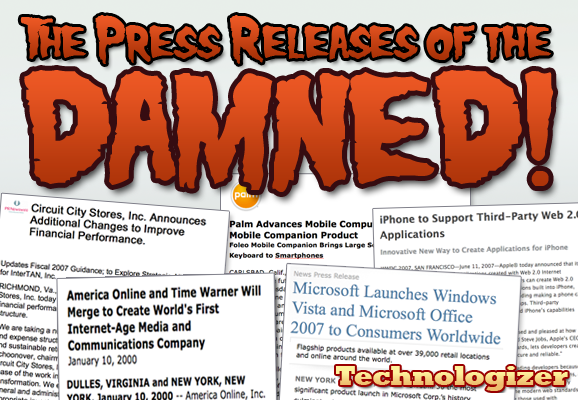

 Thought you heard the last of Circuit City? Think again.
Thought you heard the last of Circuit City? Think again. My taxes? Filed. Whew! You?
My taxes? Filed. Whew! You?
 For Circuit City, it passed for good news: On Friday,
For Circuit City, it passed for good news: On Friday, 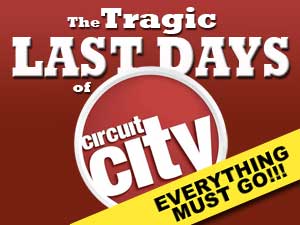 All
All 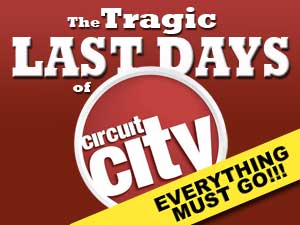 Liquidation: It’s an ugly word for the ugly process of shutting down a retailer by selling off stuff little by little until there’s nothing left that anyone’s going to buy at any price. And my most recent visit to my local branch of the
Liquidation: It’s an ugly word for the ugly process of shutting down a retailer by selling off stuff little by little until there’s nothing left that anyone’s going to buy at any price. And my most recent visit to my local branch of the 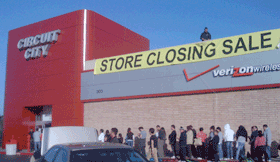 These are strange times for the retailing of computers and other technology products. Some of the most venerable and best-known names in the business are going out of business, or severely contracting: Sixty-year-old Circuit City is
These are strange times for the retailing of computers and other technology products. Some of the most venerable and best-known names in the business are going out of business, or severely contracting: Sixty-year-old Circuit City is  It’s
It’s